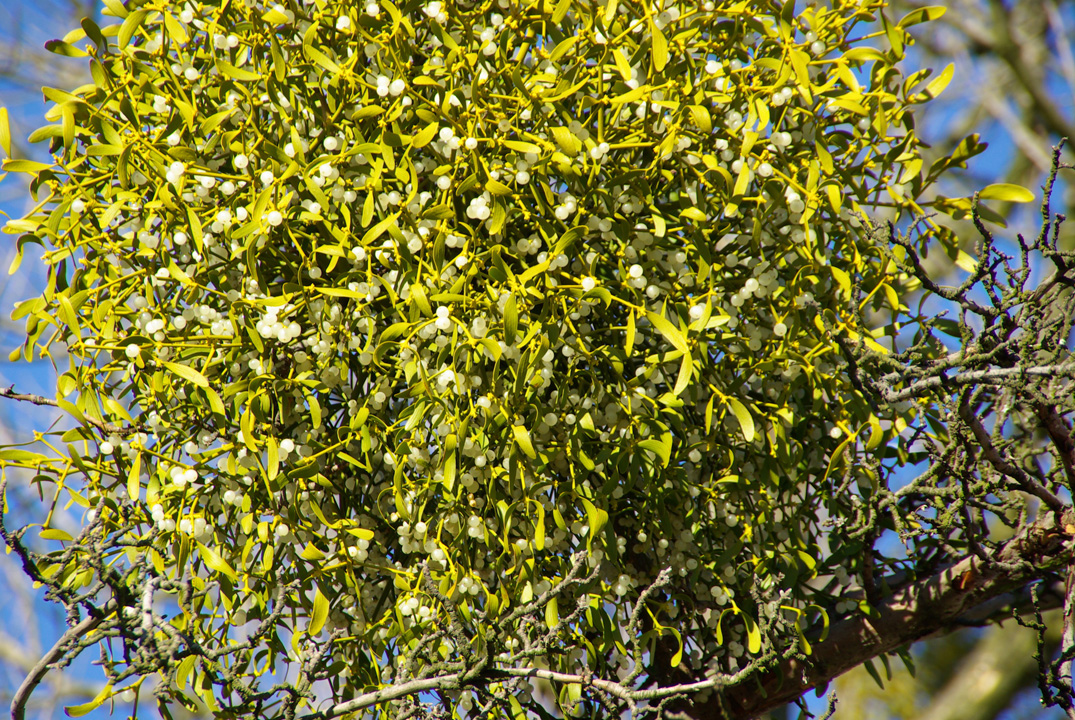
Übersicht wichtiger Publikationen
- Normiertes Mistelextrakt-Präparat: Stimulation der Neutropoese nach Chemotherapie im Tiermodell nachgewiesen
Eine Untersuchung zur Verringerung von Nebenwirkungen zytostatischer Therapie.(Quelle: Klaus Weber, Ulrich Mengs, Tobias Schwarz, Hilmar Becker, Hans Lentzen: Stimulation of Neutropoiesis by a Special Standardized Mistletoe Preparation after Cyclophosphamide Chemotherapy in Mice. Arzneimittel-Forschung / Drug Research, 46 (II), 12, 1174-1178 (1996)
- Normiertes Mistelpräparat stimuliert Zytokin-ausschüttung im Haut-Bioassay
Eine Untersuchung zur Konstanz der pharmazeutischen Qualität, durchgeführt bei ANAWA-Laboratorien, Wangen bei Zürich.(Quelle: Peter W. Joller, Jutta M. Menrad, Tobias Schwarz, Uwe Pfüller, Michael J. Parnham, Roland Weyhenmeyer, Hans Lentzen: Stimulierung der Bildung von Zytokinen durch ein normiertes Mistel-Präparat in einem menschlichen Skin-Bioassay in vitro., Arzneim.-Forsch./Drug Res. 46 (I), 649-653 (1996)
- Mistellektin-1-normierter Extrakt verbessert die Lebensqualität von Tumorpatienten
Eine prospektive Kohortenstudie mit 884 Krebspatienten
(Quelle: Antonio Finelli, Roger Limberg, Karl Scheithe: Mistel-Lektin bei Patienten mit Tumorerkrankungen, Diagnostik und Therapie im Bild 1/98)
- Normierter Mistelextrakt zeigt im Tiermodell antimetastatische Effekte
Eine experimentelle Untersuchung mit dem B16-Melanom-Modell, durchgeführt in Zusammenarbeit mit der Universität Zürich.
(Quelle: Klaus Weber et al.: Effects of a Standardized Mistletoe Preparation on Metastatic B16 Melanoma Colonization in Murine Lungs. Arzneimittel-Forschung / Drug Research 48 (I), 5, 497-502, 1998)
- Anti-Tumor-Aktivität eines auf Mistellektin-normierten Extraktes gegen Tumorzellen und murine Tumoren
(Zitat: A. M. Burger, U. Mengs, T. Schwarz, J.B. Schüler, H.H. Fiebig: Anticancer activity of a standardized mistletoe preparation in human tumor cell lines and xenografts in vitro and transplantable murine tumors in vivo. NCI-EORTC-Symposium in Amsterdam, Juni 1998)
- Rekombinantes Mistellektin (rML) ist ein potenter Inhibitor des Tumorzellwachstums
Eine experimentelle Untersuchung mit dem gentechnisch hergestellten reinen Mistellektin, durchgeführt vom der Oncotest2 GmbH, Freiburg.
(Quelle: A. M. Burger, U. Mengs, T. Schwarz, J.B. Schüler, H.H. Fiebig: Recombinant mistletoe lectin (rML) is a potent inhibitor of tumor cell growth in vitro and in vivo. 90th annual meeting of the American Associa-tion for Cancer Research, 10.-14. 4. 1999, Philadelph
- Standardisierter Mistelextrakt verbessert Lebensqualität von Brustkrebspatientinnen unter Chemotherapie
Eine prospektive Kohortenstudie mit 884 Krebspatienten
(Quelle:V .F. Semiglasow, V. V.Stipula, A. Dudow, W. Lehmacher, U. Mengs: The Standardised Misteltoe Extrakt PS76A2 improves QoL in Patients with Breast Cancer Receiving Adiuvant CMF Chemotherapy: A Randomised, Placebo-controlled, Double-blind
Mistel Summaries
Adjuvant intravesical treatment of superficial bladder cancer with a standardized mistletoe extract.
PURPOSE: Adjuvant intravesical immunotherapy with bacillus Calmette-Guerin (BCG) for noninvasive superficial bladder cancer has been shown to decrease tumor recurrence significantly. However, serious local and systemic side effects of this treatment have promoted the use of other immunoactive substances, which to date have failed to show efficacy equal to that of BCG immunotherapy. MATERIALS AND METHODS: In the current phase I/II clinical trial an aqueous mistletoe extract standardized to mistletoe lectin was administered intravesically to 30 patients with superficial urothelial bladder carcinoma. About 4 weeks after transurethral resection each patient received 6 instillations at weekly intervals of 50 ml extract with mistletoe lectin concentrations between 10 and 5,000 ng/ml, which was retained in the bladder for 2 hours. Three patients per group received a dose, which was then doubled in the next group. Clinical followup consisted of examinations with cystoscopy, cytology and random biopsies. To detect cytokines and tumor necrosis factor-p75 receptor venous blood and urine samples were taken before instillation, and 2, 6 and 24 hours thereafter. RESULTS: The tolerability of intravesically administered mistletoe extract was good at all applied concentrations. None of the patients had local or systemic side effects according to WHO classification 1-4. Within the 12-month observation time study patients with pTa G2 and pT1 G2 tumors showed a recurrence rate of 33%, comparable to that in a local historical control group of patients with equal stage and grade who were treated with adjuvant BCG. Comparison of urine cytokine levels before instillation, and 2, 6 and 24 hours thereafter brought about no significant alterations in all measured cytokines. CONCLUSIONS: From these results it is concluded that standardized mistletoe extract could be a potential alternative adjuvant therapy for superficial bladder cancer. Nevertheless, the optimal intravesical treatment regimen has yet to be defined.
Department of Urology, University of Freiburg, Freiburg, Germany. ursula.elsaesser@uniklinik-freiburg.de
(Quelle: Elsasser-Beile U, Leiber C, Wolf P, Lucht M, Mengs U, Wetterauer U., J Urol., 2005 Jul;174(1):76-9)